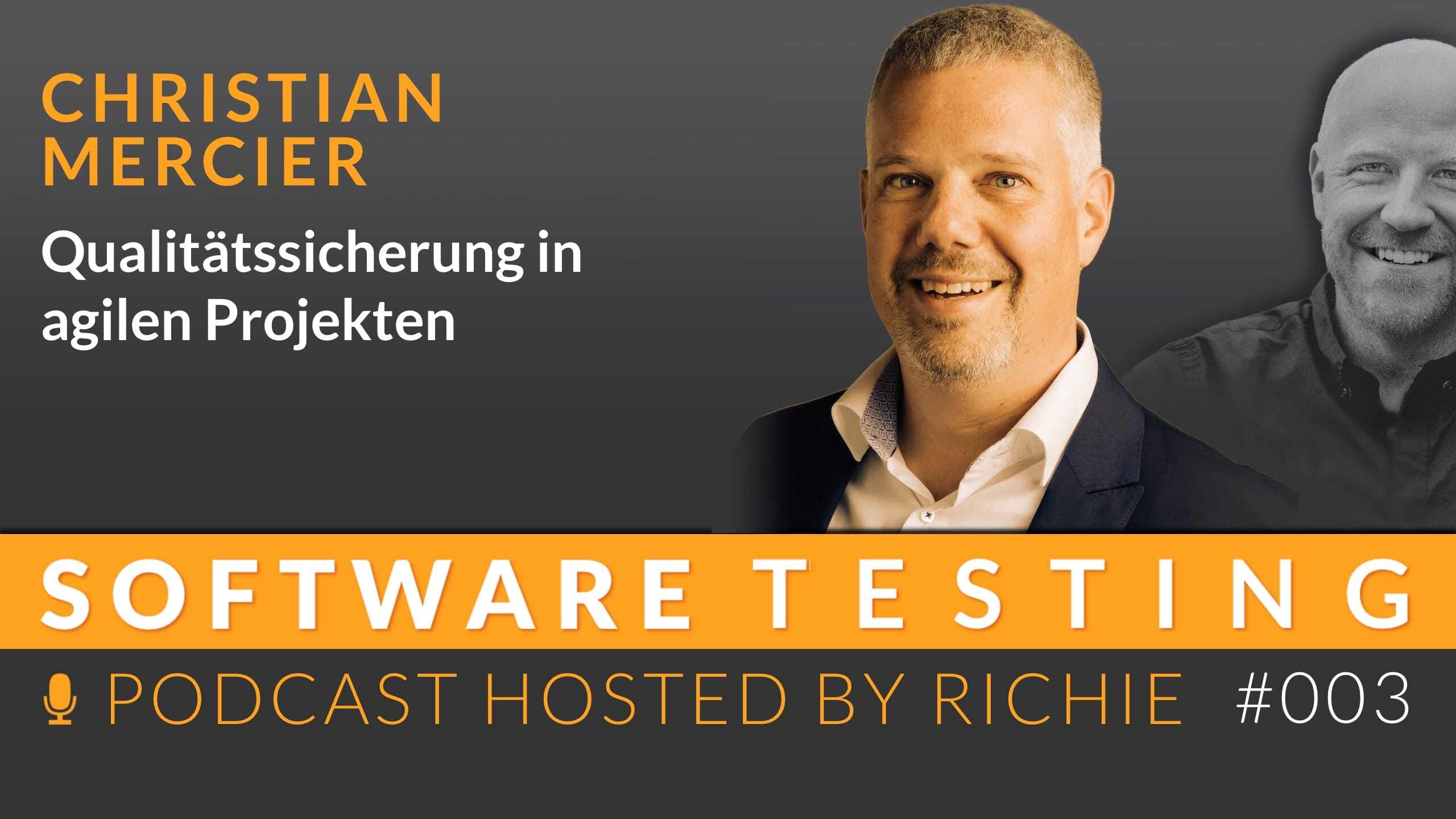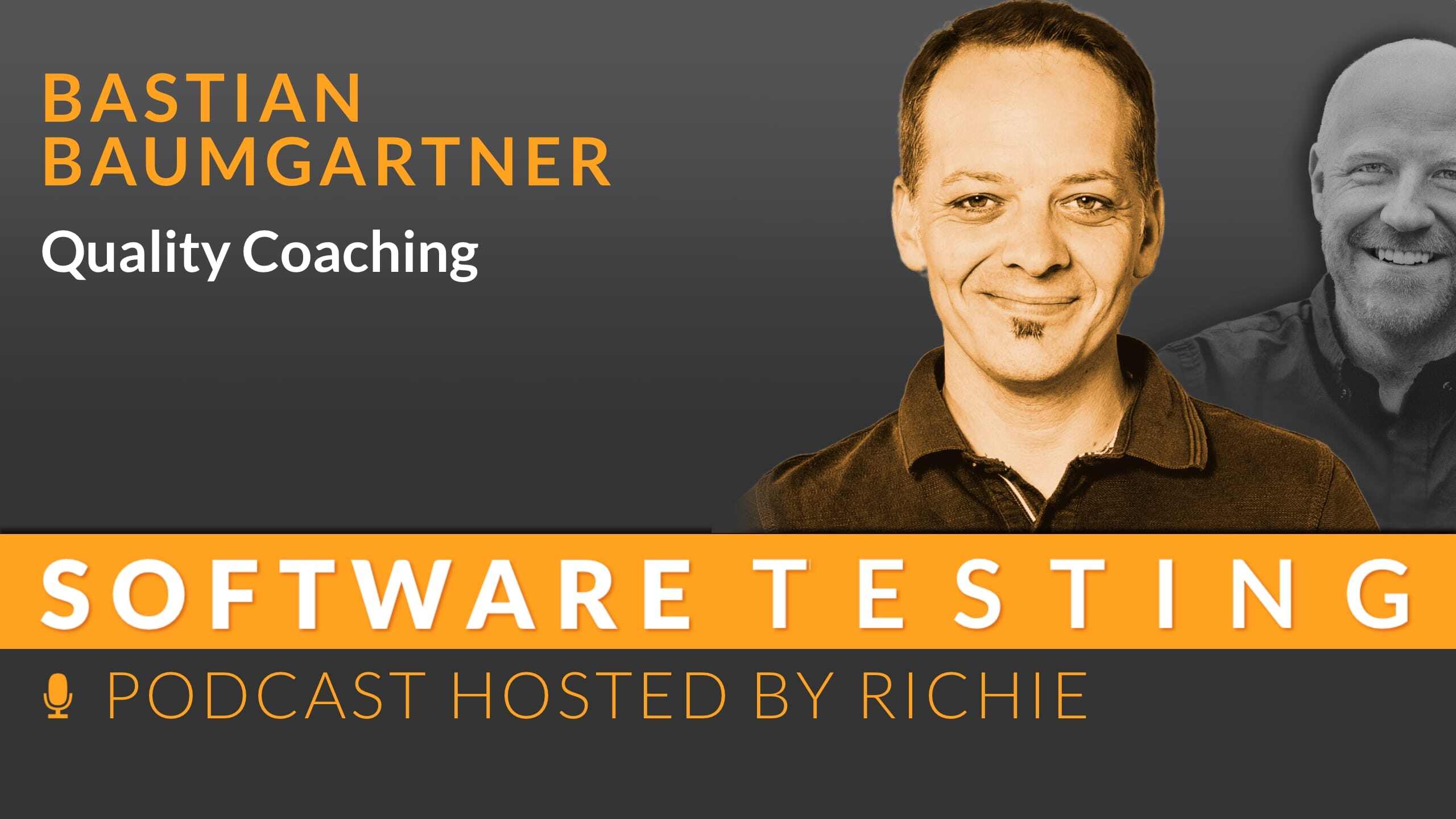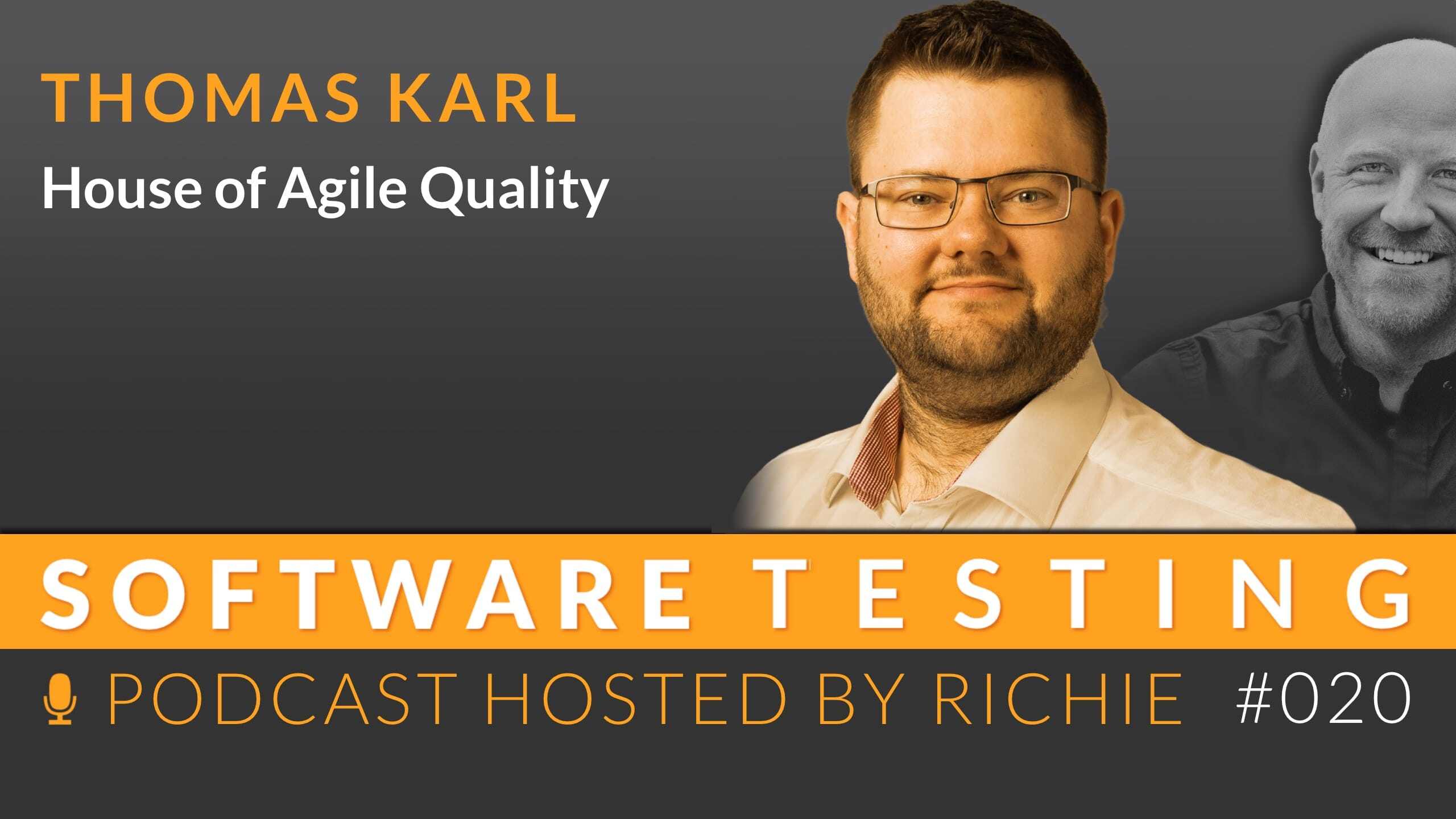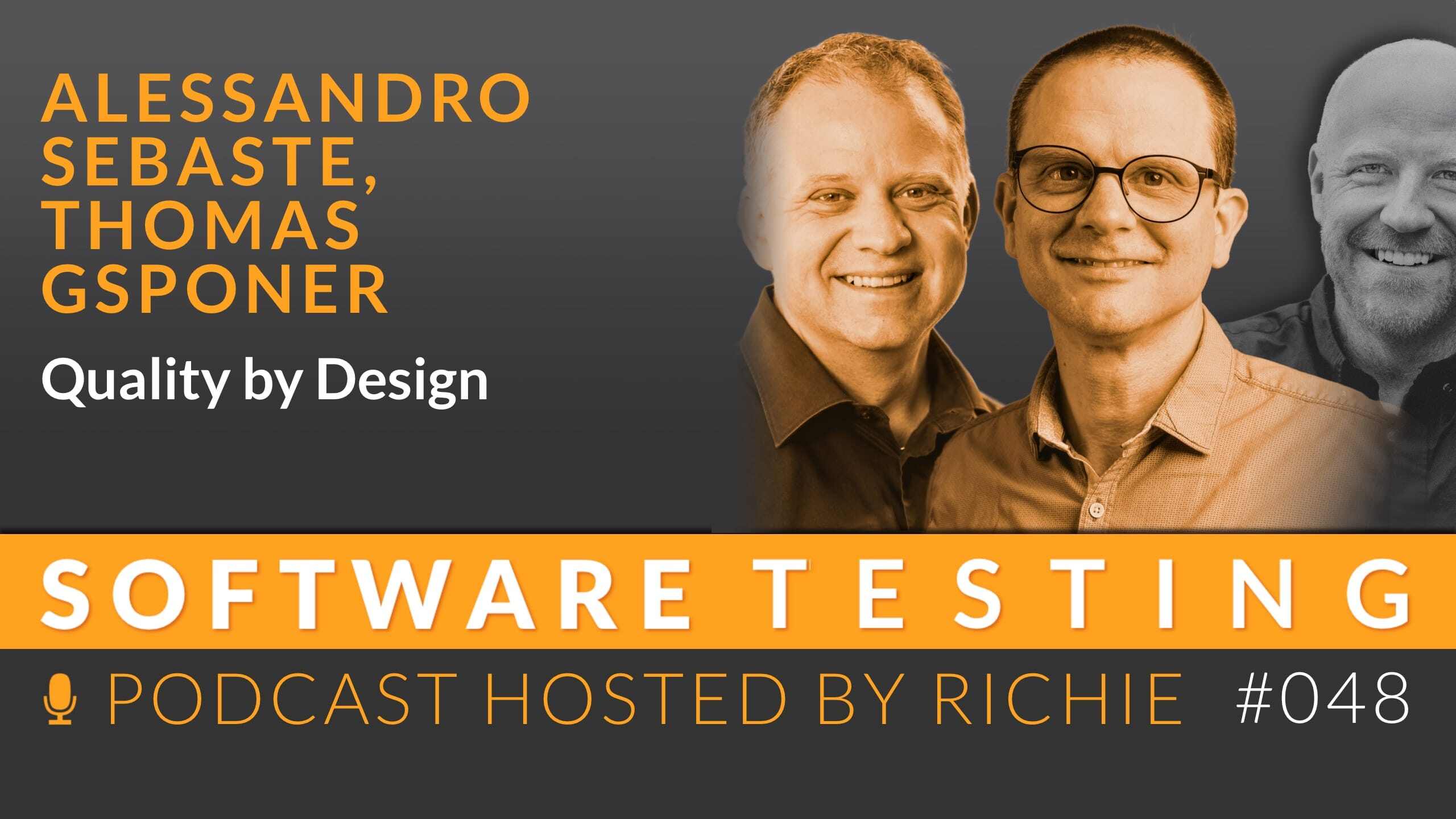Quality Coaching
Quality coaching is very different from consulting and offers unique benefits for teams. Bastian Baumgartner explains how quality coaching can help...

In this podcast episode, agile testing expert Christian Mercier focuses on quality assurance in agile projects. Key aspects of ensuring software quality are discussed, as well as team communication and how to find the right balance. Common pitfalls are explained and how they can be avoided. The role of artificial intelligence (AI) in improving quality assurance in agile projects will also be highlighted.
“Ideally, everyone (…) has a pair of tester glasses in their pocket” - Christian Mercier
Christian has been working in the financial services sector since 1996 and has gained extensive experience in branch business, CRM, strategy and IT. He has worked for savings banks, Landesbanken and group banks. He acquired his expertise in the classic project business. However, he now concentrates almost exclusively on agile methods.
As an expert in quality assurance, Christian Mercier supports his clients in implementing high-quality requirements. Long before the topic of agility was on everyone’s lips, he was already working on methods to create transparency and optimize project communication. He attaches great importance to usability and system maturity. He is particularly interested in setting up agile tests and carrying them out in an agile environment.
Highlights of this episode:
In an in-depth discussion with Christian Mercier, we talked about the intricacies of quality assurance in agile projects and how communication, team dynamics and future trends such as AI affect software quality.
During my latest podcast episode, I had the pleasure of talking to Christian Mercier, an experienced expert in the field of quality assurance. Our conversation centered around the challenges and opportunities that quality assurance brings to agile development projects. Christian emphasized the importance of early dialog within the team and the need for clear communication between everyone involved - from the tester to the developer and the specialist department. The initial steps to ensure quality start with formulating the requirements and understanding what is to be developed.
Effective quality assurance requires close collaboration between all team members. Christian explained that testers should not only be involved at the end of the development process, but already during the creation of user stories and acceptance criteria. This early involvement enables a more comprehensive consideration of potential sources of error and promotes a test-oriented development culture. We also discussed the importance of test managers in agile teams and how their role needs to adapt in order to comply with agile principles.
A key insight from our conversation was the immense importance of team communication. Through regular exchanges and refinements, the team can develop a deeper understanding of the project, minimizing risks and maximizing software quality. The continuous dialog helps to clarify misunderstandings and ensures that everyone is on the same page. This not only promotes a positive working atmosphere, but also makes a significant contribution to improving the quality of the end product.
Another exciting topic of our exchange was the use of modern technologies such as artificial intelligence (AI) to support the testing process. Christian predicted an increasing automation of testing through AI-supported tools, which will play an even more important role in the future. However, he also emphasized that despite the advanced possibilities, a critical look at what these technologies can and cannot do is necessary - an important aspect for test management.
Finally, we turned our attention to the future of quality assurance in software development. The discussion made it clear that, in addition to technological advances, a quality-oriented attitude on the part of all those involved will be crucial. The ability to adequately deal with the possibilities and limitations of new technologies such as AI as well as continuous communication within the team will make a significant contribution to further improving software quality.

Quality coaching is very different from consulting and offers unique benefits for teams. Bastian Baumgartner explains how quality coaching can help...

Thomas and Nico developed the House of Agile Quality (HOAQ) concept as part of a joint training course. Typically for big ideas, it came about rather...

What you can learn from another industry! Alessandro comes from the software sector, Thomas from the pharmaceutical industry. In conversations, they...